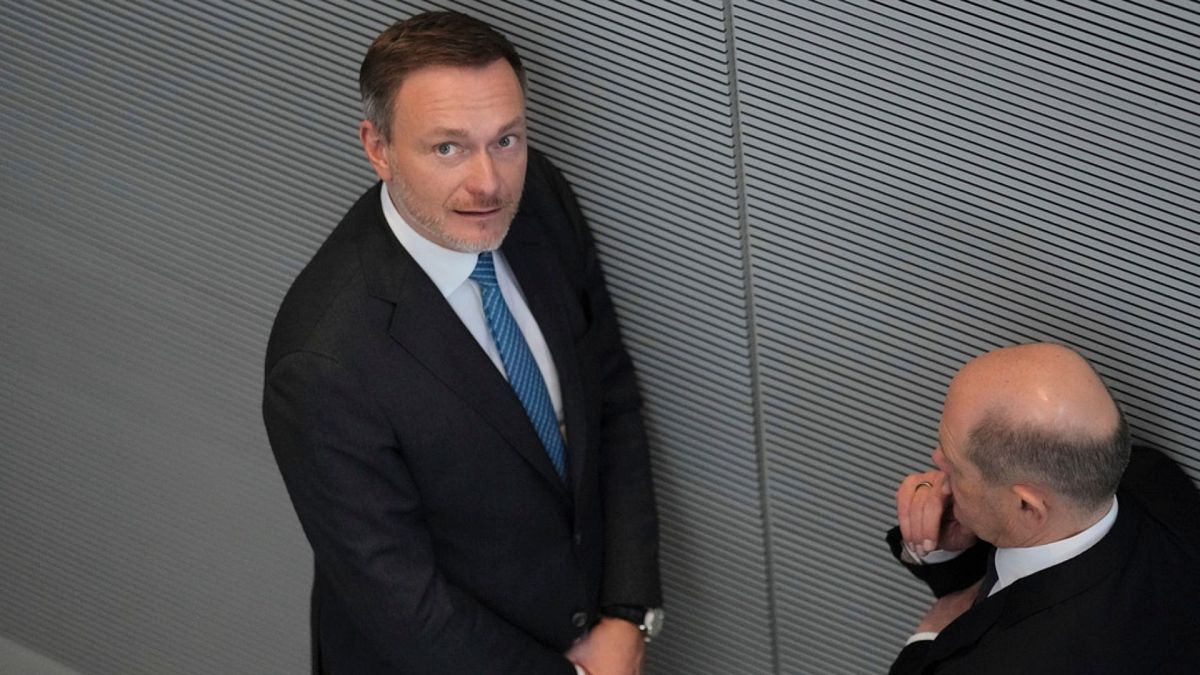A letter from the finance minister has raised concerns about how long and how robustly Germany will continue to support Ukraine in the face of Russia's invasion.
German politicians have blasted potential government plans to refuse to send Ukraine any more financial aid.
The chairman of the Bundestag's Foreign Affairs Committee, Michael Roth, reportedly told journalists that failing to provide new military aid for Ukraine under future federal budgets would send Kyiv "a fatal signal".
The comments came after domestic media reported on a letter from Finance Minister Christian Lindner to the foreign and defence ministries in which he said that "new measures" to fund Ukraine against Russia's invasion could only be taken if "funding is secured" in budgetary plans.
Lindner is currently trying to rein in Germany's spending under a constitutional debt brake that limits the amount of new debt the government can take on.
The current 2025 budget has earmarked €4 billion for Ukraine, but as things stand, there appears to be no new money earmarked for future aid.
Since Linder's letter was revealed, the Ministry of Finance has since assured that it would "examine the short-term provision of additional funds" — but that hasn't stopped politicians from weighing in.
Roth told reporters that as the Ukrainian army goes on the offensive for the first time in months with its incursion into Russia's Kursk region, Kyiv needs "the full support of its most important military ally in Europe, Germany".
The centre-right CDU/CSU, the largest opposition group in the Bundestag, also slammed the idea of limiting future aid, stating that Ukraine's fight for freedom was suffering "due to the constant traffic light dispute".
Local reports state that the German government is hoping that Ukraine will be able to receive further financial support thanks to the interest gained from frozen Russian assets.
It pointed specifically towards a G7 agreement in June which said Ukraine would receive around $50 billion (€45 billion) in aid by the end of the year, including interest from Russian assets.
Ukraine's allies have so far confiscated about $300 billion since the start of Moscow's full-scale invasion in February 2022.
Ukraine's ambassador to Germany, Oleksii Makeiev, reportedly urged the government in Berlin to not let up, arguing that Europe's security "depends on Germany's ability and political will" to continue leading the continent's support of Ukraine.












